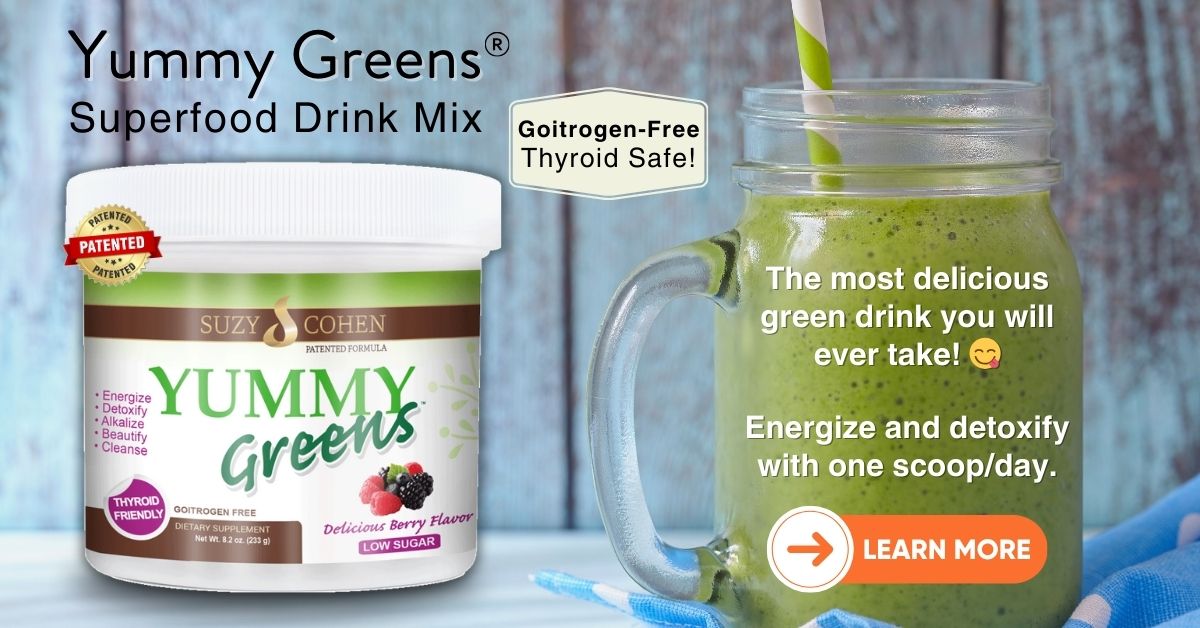What's On This Page?
ToggleAs the holiday season rolls in with its festive cheer and busy schedules, finding moments of tranquility can be as crucial as keeping up with the holiday preparations. One might lean more on wine and cocktails, or pot during this holiday season too, whether that’s to relax at some social event, or friend’s house, or to stop thinking about stressful situations. Unfortunately, it’s easy to get carried away at the holidays. So many people are lonely too.
But, another timeless, yet often overlooked, method to achieve serenity is through the simple act of sipping herbal tea.
I make it a point to carry select packets of high-quality, organic herbal teas in my handbag, particularly when I’m traveling. This habit comes in handy, as the tea options offered in hotels often fall short of my preferences, tending to be lower quality or overly processed brands. Without meaning to sound overly particular, those hotel varieties simply don’t resonate with my palate. They’re just not my cup of tea, both literally and figuratively!
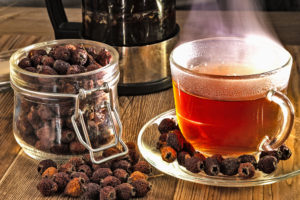
Herbal teas, or tisanes, have long been revered for their ability to soothe the mind and body, making them a perfect companion for the holiday hustle! And since herbs have medicinal value, it’s like drinking your medication actually! But maybe not for everyone…I am reminded of the Apple series “Ted Lasso” which I watched a couple of years ago.
The character Ted Lasso, portrayed by Jason Sudeikis, is famously not a fan of tea. In a humorous and memorable scene, he tries traditional British tea for the first time and immediately dislikes it, humorously comparing its taste to “garbage water.” This moment becomes a recurring joke throughout the series, reflecting Ted’s American roots and his adjustment to British culture. His distaste for tea serves as a light-hearted symbol of his fish-out-of-water experience in the UK, where tea is a beloved national drink!
The Cultural Tapestry of Herbal Teas
Herbal teas hold a special place in almost every single culture around the world because it’s obvious… plants grow everywhere and people have learned to steep them in hot water. Whether it’s due to ceremonial traditions, or just relaxation, it’s an ancient art, and one that I’ve cultivated in my own home. If you saw my tea cabinet of herbs in Mason jars, you’d know why I was so passionate about natural medicine. Here’s another article you may be interested in after reading this one: How to Make Herbal Teas for Your Health.
From the calming Chamomile of ancient Egypt to the rejuvenating Green tea ceremonies of Japan, these brews have been integral to health and wellness practices for centuries. The universal appeal lies in the therapeutic property and flavor profile, which have been recognized and utilized across civilizations.
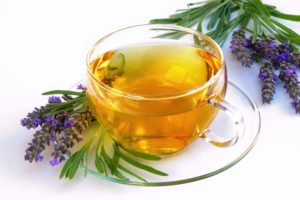
Why Herbal Teas Shine – Especially During the Holidays!
Incorporating herbal teas into your holiday routine offers a multitude of benefits. Clinically, these teas are caffeine-free and hydrating, a necessary respite for our bodies during the colder months. By integrating herbal teas you’re also tapping into an age-old tradition of natural wellness. Let’s talk about that now.
The Benefits of Herbal Teas
While herbal teas won’t solve all the problems of December, nor will they untangle your Christmas lights, they do offer a remarkable array of health benefits that are particularly useful during the bustling holiday season. Besides, nobody wants to let indigestion be the Grinch that steals Christmas dinner! Similarly, for Jewish people celebrating Hanukkah, a soothing cup of herbal tea can be the perfect companion to the festive lights and delicious (but greasy!) foods like latkes and sufganiyot. That last one is a jelly donut, my favorite!
Let me help you craft your own holiday blend by giving you some herbs and flavors that are associated with the holidays.
Selecting and Combining Herbs:
- Flavor Balance: Consider the flavor profiles of your chosen herbs. Do you want something soothing and mild, or bold and spicy? Balance is key.
- Health Benefits: Think about what you want your tea to do. Need relaxation? Chamomile and Lavender might be your stars. Digestive support? Peppermint and Ginger could take the lead. And then there’s Slippery Elm Gruel which has a pudding texture. I show you how to make it in this VIDEO.
Choosing Quality Ingredients
- Go Organic: Whenever possible, choose organic herbs to avoid pesticides and other chemicals.
- Freshness Matters: Look for fresh, vibrant herbs. They should have a strong, natural scent and bright color, signs they’re potent and fresh.
- Loose-Leaf vs. Bagged: Loose-leaf teas often offer better quality and flavor than bagged options, as they allow more room for the herbs to expand and release their full aroma and health benefits.
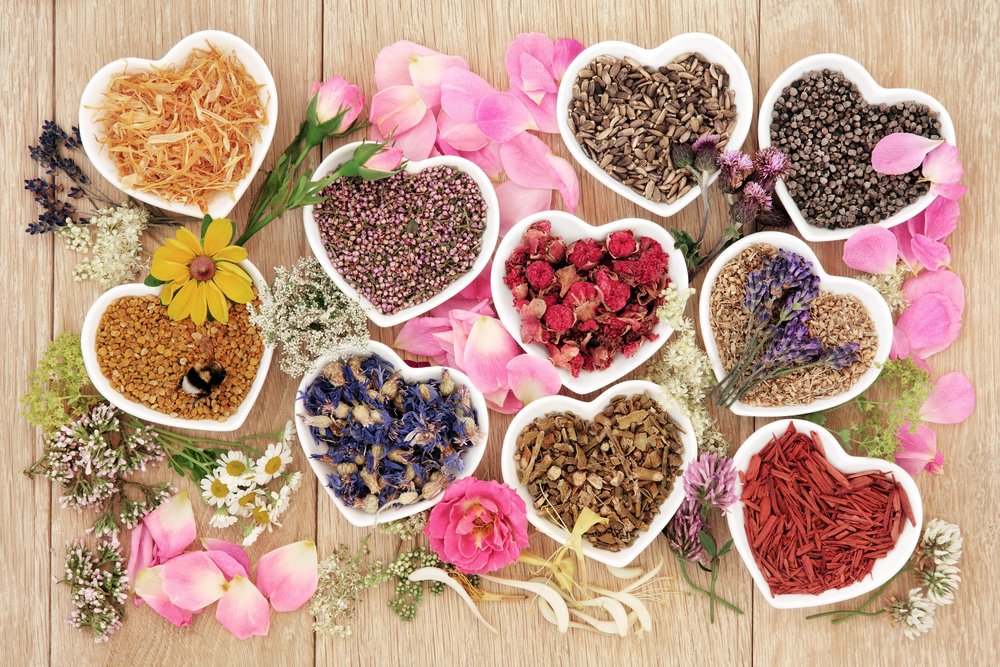
Remember, the best blend is the one that suits your taste and wellness needs. For me, it probably never happens without some rooibos or a citrus herb (rosehips or lemon or orange peel). I also almost always put a small amount of marshmallow root in all my teas. You can watch one of my older videos on how to make this by CLICKING HERE. So don’t be afraid to experiment. Here are 12 ideas to make herbal teas – use three to four of these when combining your herbs (not all of them).
- Cinnamon: Known for its warm, spicy, and sweet flavor, cinnamon is often associated with comfort and warmth, making it a staple in holiday recipes. It’s commonly used in mulled wine, gingerbread, and pumpkin pie, which are all traditional holiday treats.Its sweet and spicy profile is not only comforting but may also offer health benefits like blood sugar regulation* making it a great choice for those indulging in holiday sweets. I wrote another article about CINNAMON. I put a good amount of cinnamon in my GlucoScript MAX capsules!
- Peppermint: With its cool, refreshing taste, peppermint is synonymous with the holiday season, especially in the form of candy canes. Its vibrant flavor pairs well with chocolate and is often used in holiday desserts like peppermint bark or hot chocolate. Peppermint tea is a holiday favorite, not just for its refreshing, cool flavor, but also for its ability to aid digestion and ease spasms associated with diverticulosis. After a hefty holiday meal, this tea can relieve bloating and indigestion.
- Orange: Oranges and their peels offer a sweet, citrusy aroma and flavor that’s often used in holiday cooking and baking. They’re a key ingredient in fruitcakes, spiced punches, and mulling spices, bringing a bright and fresh note to holiday dishes.
- Ginger: Known for its zesty and warming qualities, ginger is a key ingredient in gingerbread and is often used in holiday cookies and cakes. It adds a zesty flavor to teas and is believed to soothe the stomach. Ginger also brings an immune-boosting quality to your cup, which is especially valuable during the cold season. I put a good amount of ginger in my Joint Script because ginger is known to support joint health through it’s “gingerols.”
- Cloves: With their intense, sweet, and aromatic flavor, cloves are often used in holiday baking, mulled wine, and spiced tea blends. They pair well with apples, oranges, and cinnamon, creating a quintessential holiday aroma.
- Cardamom: This aromatic spice has a complex flavor profile, combining notes of citrus, mint, spice, and sweetness. It’s commonly used in Scandinavian holiday baking, like in Swedish cardamom buns.
- Star Anise: Star anise has a strong, licorice-like flavor and is often used in mulled wine or cider. It adds a distinctive and festive note to any holiday tea blend. To use this for tea, you just put 1 or 2 star anise pods in the water (usually 1 per cup of water) or inside a cast iron teapot and let steep for 15 minutes.
- Nutmeg: Nutmeg offers a warm, nutty flavor and is a key ingredient in eggnog, a classic holiday beverage. It’s also used in various baked goods and pairs well with cinnamon and cloves.
- Vanilla: With its sweet and cozy aroma, vanilla is a popular flavor during the holidays. It’s a common ingredient in cookies, cakes, and beverages, adding a smooth and comforting note to tea blends.
- Rosemary: While not a traditional tea ingredient, rosemary’s piney aroma can evoke the scent of holiday greenery. It can be used in savory holiday dishes or as a unique, aromatic addition to a tea blend.
- Chamomile: Its mild, slightly sweet, and floral flavor makes it a delightful choice. Beyond its soothing aroma, Chamomile contains apigenin, an antioxidant that binds to certain receptors in your brain, promoting sleepiness and reducing insomnia. I put a good amount of chamomile extract in my Sleep Script capsules.
I also have a video of me in pajamas lol, making a simple delicious sleep-inducing tea. You can watch that on YouTube HERE. Pregnant women may want to minimize chamomile because large amounts are associated with pre-term labor (miscarriage), and also, those who are allergic to asters, wormwood, tansies, daisies, chrysanthemums, marigolds, thistle, or ragweed should avoid chamomile because you may also be allergic to chamomile (it’s int he same family). - Rosehips: Often overshadowed by more common herbs, rosehips are a hidden gem in the tea world. It’s not technically associated with the holidays though I use it in blends to add some flavor and color. These small, fruity pods from the rose plant are bursting with Vitamin C and antioxidants. Their tangy, slightly sweet flavor adds a unique twist to any holiday tea blend, offering a cheerful boost to your immune system.
Here are a couple of very simple recipes:
Chamomile-Rosehips Blend
- Ingredients: 2 or 3 tbsp dried Chamomile flowers, 1 tsp rosehips.
- Instructions: Boil 4 cups water and pour over the herbs in a teapot. Let steep for 5-7 minutes. Strain and enjoy.
- Optional: Add a hint of honey or a slice of orange for extra flavor.
- Variation: For a deeper relaxation effect, add some lemon balm, or passionflower.
Cinnamon-Ginger Blend
- Ingredients: 1 cinnamon stick, 1-inch fresh ginger root (thinly sliced), 2 cups water.
- Instructions: Simmer ginger and cinnamon in 4 cups water for 15-20 minutes. Strain into a cup.
- Optional: Sweeten with a bit of maple syrup or add a splash of apple juice for a festive twist.
- Variation: Include a few cloves or star anise for added warmth and complexity.
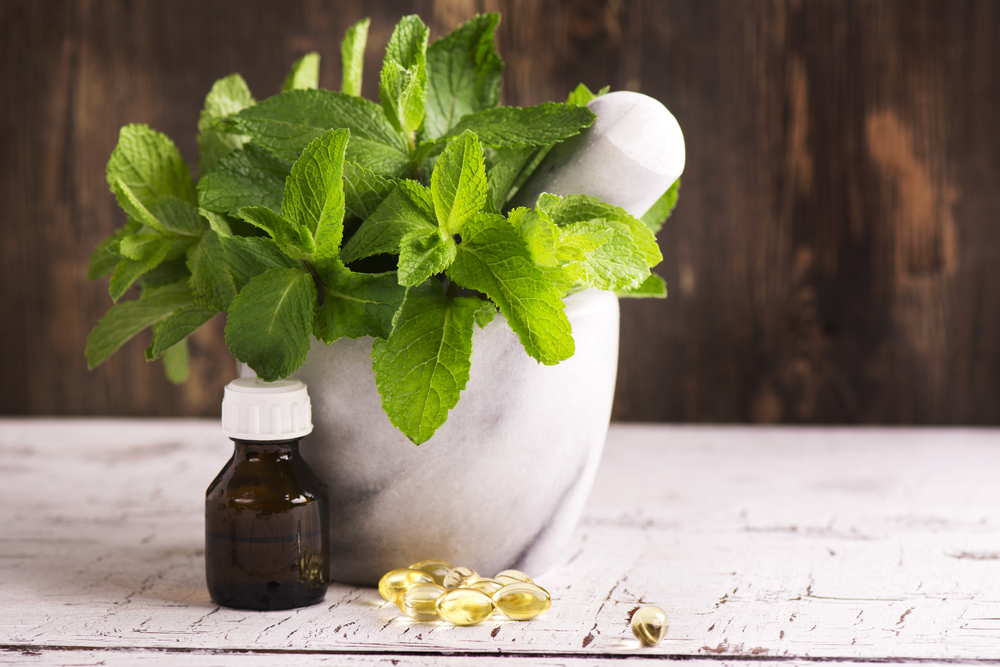
Peppermint-Ginger Digestive Tea
- Ingredients: 1 tbsp dried Peppermint leaves, ½ inch ginger root (grated).
- Instructions: Boil 4 cups water, add ginger, and simmer for 5 minutes. Remove from heat, add peppermint, cover, and steep for 7 to 10 minutes. Strain and serve.
- Optional: A drop of lemon juice can enhance the flavor.
- Variation: Add some dried plantain herb for more digestive comfort.
Enjoying Herbal Teas During the Holidays
Herbal teas can become a delightful part of your holiday rituals. Imagine a post-dinner tea session, where family members gather to share stories over a pot of warm, aromatic tea. Or consider hosting a holiday tea party, where each guest brings their unique tea blend. These teas can also be incorporated into holiday-themed cocktails for a festive twist – think a Peppermint tea mojito or a Cinnamon-Ginger tea toddy.
Safety Considerations and Allergies
While herbal teas are generally safe, they can interact with certain medications, just like their ancient medicinal counterparts. For example, Chamomile may interact with blood thinners. I’ve also already mentioned that large amounts should not be consumed by pregnant women. Some herbs are estrogenic, others can cause diarrhea. Always consult with a healthcare provider if you’re on a potent medication like warfarin or something for seizure control. Also, be aware of allergies.
Delving into the world of herbal teas during the holidays is not just about savoring delicious flavors; it’s a nod to the ancient tradition of healing through nature’s bounty. Before the advent of pharmaceuticals, these herbs were the medicines of the time, offering relief and wellness. By incorporating these teas into your holiday season, you’re embracing a piece of history, rekindling a connection to nature, and, of course, reaping the relaxation benefits.
For more on the wonders of herbal teas, their preparation, and their benefits, explore google these sites:

Suzy Cohen, has been a licensed pharmacist for over 30 years and believes the best approach to chronic illness is a combination of natural medicine and conventional. She founded her own dietary supplement company specializing in custom-formulas, some of which have patents. With a special focus on functional medicine, thyroid health and drug nutrient depletion, Suzy is the author of several related books including Thyroid Healthy, Drug Muggers, Diabetes Without Drugs, and a nationally syndicated column.

